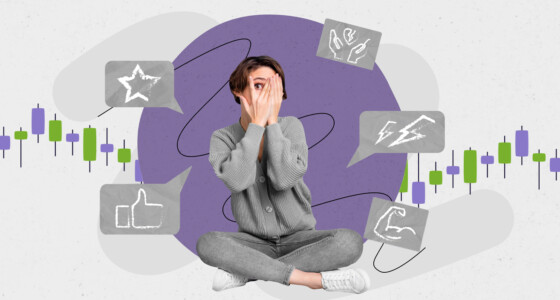

Do people learn from their own mistakes? Well, Walt Disney did. He was fired from a newspaper for “not being creative enough”, but he took the criticism seriously and went on to create one of the most famous characters of all time, Mickey Mouse.
Do you know how to learn from your mistakes? That’s another question that you should explore on your own. One thing that will definitely help you become better at it is a trading journal.
What is a trading journal?

A trading journal is a record of a trader’s past transactions and performance. It includes any relevant technical or fundamental analysis that the trader used to make their decision. It also includes the thoughts and emotions at the time of the trade, which can be valuable for understanding why certain trades were successful or not.
The concept of keeping a trading journal is not attributed to any one person or organization. It has been done by traders for centuries, leaving no doubt that it is actually useful. But unlike traders decades ago, you can now digitize your trading journal and have everything in a convenient, easy-to-search, easy-to-edit format.
What should a trading journal include?
A trading journal should include a wide range of information about each trade to provide a detailed picture of the trader’s performance. Include the following data in columns:
- Instrument: what is being traded (currency pair, stock, commodity, etc.)
- Date and time: when the trade was executed
- Trade direction: a buy or a sell
- Entry and exit price: the price at the start and the end of the trade
- Trade size: the number of units or amount of money invested
- Reasons: signals and justifications from technical or fundamental analysis
- Profit or loss: the monetary outcome of the trade and the percentage change
- Additional notes: any other relevant information or observations, such as emotions, market conditions, and other factors that might have influenced the trade

What are the benefits of a trading journal?

Keeping a trading journal can provide many benefits for traders, including:
- Improved performance: evaluating your performance and identifying patterns in your behavior. By analyzing their past trades, they can make adjustments to their trading strategy and avoid repeating past mistakes.
- Better decision-making: Recording the reasons behind a trade can help traders to evaluate the effectiveness of their analysis, whether technical or fundamental, and improve their decision-making process.
- Emotional management: Recording emotions and thoughts can also help traders to understand their emotional responses to market conditions and develop strategies for managing them.
It is clear that maintaining a trading journal is a key aspect of the trader’s routine, and it is one of the reasons why successful traders have achieved such results.
How to maintain a trading journal the right way
If you want the trading journal to work to your benefit, be honest with yourself when recording your trades and emotions, even if it means admitting to mistakes. Also, it helps to keep the journal in a way that works for you, be it a spreadsheet or specialized software. Although, a paper notebook is a bit outdated and inefficient.
Finally, remember that keeping a trading journal is a long-term commitment, so be persistent and stick with it.
Sources:
How writing things down can change your life, Lifehack
How to keep a trading journal the easy way, The Balance








